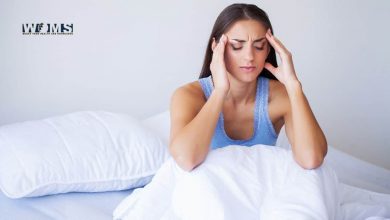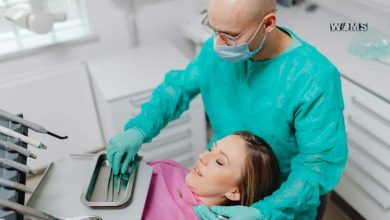How to Deal with Menopause & Its Symptoms

If you have reached your 40s, chances are you’ve already started reading up a lot to prepare yourself before you approach the big M, aka Menopause. But the truth is, no matter how prepared a woman is, the tussle of navigating through the many symptoms of menopause is very real. After all, it makes your hormones go haywire, and menopause symptoms like hot flashes, urinary incontinence, mood swings, weight gain, etc. are on a quest to baffle your mind. It’s almost like menopause is puberty’s evil older sister!
Either way, menopause is a natural part of aging that may be out of your control. How you handle it, though, is in your hands.
Luckily, we’ve found some tips and tricks that can help you sail through the dark days and come out on the other side with a newfound perspective, energy, and confidence.
To deal with Menopause prefer a doctor that has working experience in Menopause Treatment.
Hot Flashes
Hot flashes occur due to a sudden rise in body temperature and may cause redness of the face, neck, and chest.
The first step in dealing with hot flashes is by understanding the triggers, for example, hot beverages, spicy food, alcohol, caffeine, warm air temperatures, stress, etc. You can combat hot flashes by keeping your trigger foods in check, trying relaxation techniques like gentle yoga or paced respiration, consuming foods rich in phytoestrogen (soybean, flaxseed, fenugreek, etc.), avoiding tight clothes when outside, regulating the air conditioning, or placing a cold pack under your pillow while sleeping.
Vaginal Dryness
As the estrogen level in your body drops, the natural lubrication in your vagina may reduce, causing dryness and discomfort. This may lead to painful sex, but don’t be scared to discuss the issue with your partner and a gynecologist.
You can battle vaginal dryness by drinking enough water for inside-out hydration, trying lubricants during intercourse, or seeking estrogen treatments in the form of creams, rings, or tablets.
Irregular Periods
Irregular menstrual cycles are a hallmark of perimenopause. Your period may be shorter, the flow may be heavier, and cramps may ease or get worse.
Doctors often prescribe birth control pills to make periods lighter and more regular. Intermittent doses of progestogen may help women with erratic bleeding and no ovulation. Other treatments include taking NSAID pain killers or using IUDs to ease irregular periods.
It is best to let a medical practitioner decide the ideal treatment for you.
Mood Swings and Depression
Fluctuating hormones can result in uncertain emotions like unfathomable irritability, anger, anxiety, or sadness. If left unchecked, it could result in depression.
Practicing reflections, relaxation techniques, exercising, receiving counseling, maintaining a healthy diet, getting the right social support, writing in an appreciation journal, indulging in self-nurturing activities, and getting adequate sleep are all ways to aid positivity and good mental health.
Weight Gain
A decline in metabolism and the tendency to store fat more easily may result in weight gain during menopause.
Exercising will not only help improve your physical fitness, but the endorphins will make you feel positive. So, choose whatever form of workout you enjoy, for example, Zumba, yoga, gym, dance, running, or mix it up! And, don’t forget to eat right.
Night Sweats and Insomnia
Night sweats are excessive perspiration at night disturbing your sleep.
Avoiding trigger foods and consuming flaxseeds is beneficial over here too as night sweats are basically hot flashes occurring during sleep. Exercising during the day is a great way to reduce the effects of insomnia. Winding down and relaxing before going to bed by listening to music, using essential oils, or taking a leisurely bath can help you sleep well.
Urinary Incontinence
The loss of tissue elasticity and weaker pelvic muscles can cause poor bladder control during menopause.
You can overcome this unfortunate annoyance by doing Kegel exercises to strengthen pelvic floor muscles. Also, drink an optimum amount of water to keep your urine diluted (clear and pale yellow), and avoid food with high acid or caffeine content such as coffee, oranges, tomato, soft drinks, etc.
While there are some practical ways of dealing with menopause symptoms, a few problems may get out of hand. Don’t be afraid of seeking professional help in such circumstances. A healthcare professional will be able to understand your problems and provide specific solutions to help you lead a better-quality life.




